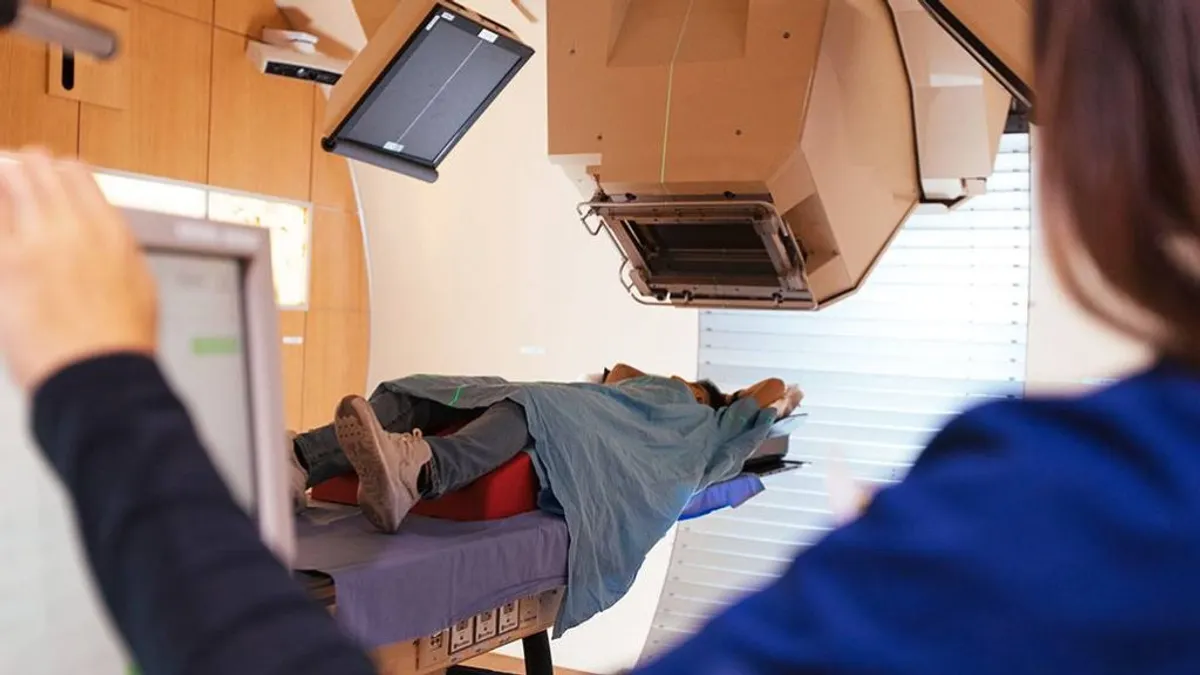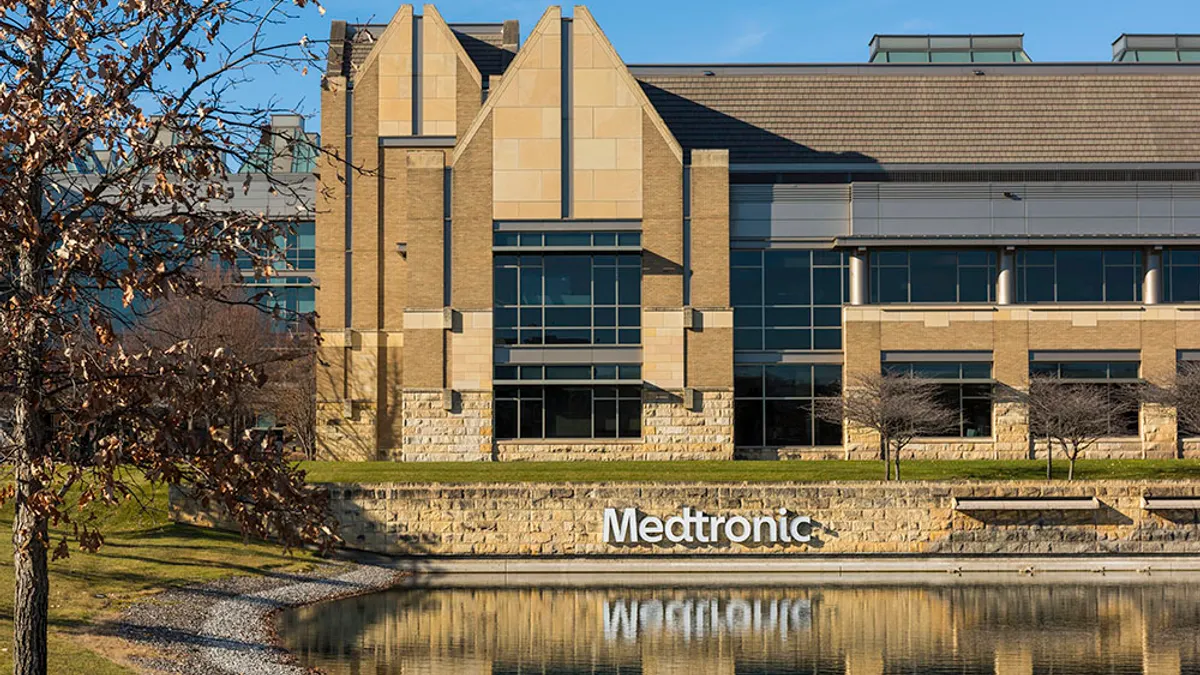Nearly three months after FDA said scientific data didn't support a ban on any breast implants, it reversed course and cited new evidence when it asked Allergan to voluntarily recall nearly a dozen different macrotextured products linked to cases of a type of non-Hodgkin's lymphoma.
"This was a shocker," Jamee Cook, founder of Breast Implant Victim Advocacy, told MedTech Dive of FDA's July 24 announcement.
FDA's communication cited an additional 116 cases of breast implant anaplastic large cell lymphoma, or BIA-ALCL, a complication the agency first flagged to the public in 2011. The complication was also a subject of discussion during a two-day advisory panel meeting in March 2019. Regulators had also become aware of 24 newfound deaths related to the disease via Medical Device Reports. The information brought the agency's known totals on BIA-ALCL to 573 unique cases globally and 33 deaths.
Allergan devices are implicated in 12 of the 13 deaths for which the implant manufacturer is known. The company's widespread market withdrawal follows its removal of textured implants from Europe last December after regulators didn't renew the devices' marketing license, contributing to a 30% decline in breast implant sales the next quarter. Canada, France and Australia are among the countries that have taken their own restrictive actions against textured implants prior to Allergan's worldwide recall.
Still, heightened awareness of breast implants' health risks this year doesn't appear to have sparked a retreat from the devices, industry stakeholders said. Breast augmentation has been the number one plastic surgery procedure in the U.S. since 2006, according to the most recent annual statistics from the American Society of Plastic Surgeons (ASPS).
Johnson & Johnson reported in its most recent quarterly filing sales at breast implants subsidiary Mentor are growing enough to help offset operational decline in its specialty surgery unit. Another U.S. manufacturer, Sientra, recorded 25% growth in breast products in the earnings period following the FDA meeting, with tissue expanders used in reconstruction procedures reportedly growing 50%.
ASPS President Alan Matarasso thinks the entire textured implant market will likely be "painted with the same brush" as the macrotextured products being recalled by Allergan, he told MedTech Dive in an interview. But, in the U.S., only about 10% of breast implants sold are textured, FDA has noted. And, at the March panel meeting, representatives from Sientra said roughly 80% of its breast implant sales are smooth, while Mentor indicated its ratio is close to 95%.
Sink or swim
Scrutiny of breast implant safety has created a moment of pressure, particularly for small manufacturers.
San Jose, California-based textured tissue expander startup AirXpanders was among the manufacturers with breast implants up for market suspension in Australia following a Therapeutic Goods Administration safety review. The company has since filed for Chapter 7 bankruptcy.
"Due to the limited history of AeroForm in Australia, TGA has preliminarily concluded that any link between the device and BIA-ALCL is yet to be seen in Australia," CEO Frank Grillo wrote following TGA's announcement.
Others may be able to seize on the dent to textured implants' reputation.
Costa Rica-based Establishment Labs, which says it sells its smooth Motiva breast implants in 75 countries outside the U.S., reported second quarter revenues of $21.7 million, representing close to 60% year-over-year growth. The company currently expects yearly sales to reach up to $86 million, likely outpacing those of Sientra.
"Against this challenging regulatory environment and negative news coverage, we continue to be unaffected by the recent safety related bans on silicone breast implants associated with BIA-ALCL from international regulatory bodies," CEO Juan José Chacón-Quirós recently told investors in prepared remarks.
Analysts are equally bullish on the emerging company, which touts its manufacturing process and especially smooth surface design as less likely to trigger a negative immunologic response.
"Turmoil in the global breast implant market, with [Allergan] textured implants being recalled globally, has certainly helped, but [Establishment Labs] was already capturing significant share based on the differentiated nature and better outcomes with its Motiva implants," Jefferies analyst Raj Denhoy wrote to investors Aug. 13, noting the company was the only approved manufacturer in Australia not to have products tapped for suspension or cancellation.
The company began a U.S. trial of the devices last year with a primary completion date slated for next March, and is reportedly shooting for FDA approval in 2022.
"We continue to believe that the controversy surrounding macro-textured breast implants presents a significant opportunity for Motiva share capture, which should provide a benefit to [Establishment Labs] throughout the remainder of 2019 and into the outyears," Cowen analyst Josh Jennings wrote in an Aug. 13 note.
Beyond the Allergan recall
Even with Allergan's most controversial implants off the market, questions remain about how various implant surface textures and fills relate to BIA-ALCL and other adverse reactions.
Although Allergan was the most commonly implicated manufacturer in reports of BIA-ALCL, many reports were undercoded, lacking information on which manufacturer produced the involved implant. FDA's latest data indicates more than two-thirds of BIA-ALCL cases have been definitively linked to women who have had textured implants.
Retired plastic surgeon Robert Hamas, founder of Texas-based, PMA-holding breast implant startup Ideal Implant, said in an interview with MedTech Dive Allergan's comparatively high rate of cancer cases could be correlated with its outsized market share.
"Let's say Allergan had 80% of the cases of ALCL, but they also had 80% of the textured implant market ... that would mean that other textures could potentially cause ALCL," Hamas said. But clear data on Allergan's market share in relation to other manufacturers' is hard to come by. Matarasso said ASPS doesn't know for sure, and neither does FDA.
Aside from understanding where BIA-ALCL comes from, institutions like MD Anderson Cancer Center are also making inroads on how to better diagnose the disease. A group of researchers published proposed recommendations this month on when and how to conduct pathologic testing on breast implant capsules, thick scar tissue that may form around an implant, for patients with suspected BIA-ALCL.
Such guidelines have not previously existed in the plastic surgery field; co-author Roberto Miranda told MedTech Dive the intent is to get feedback from stakeholders in the next six months to create a standard that helps diagnose the disease more uniformly.
While much of FDA's panel meeting focused on cancer, it also addressed breast implant illness — a newly recognized term encompassing a list of more than 90 symptoms, many of them thought to be immune responses, that women with breast implants have reported as being potentially related to the devices. Complications have been reported across texture and fill types.
One way the clinical community is aiming to get answers is by gathering new data through ASPS's National Breast Implant Registry, launched late last year to track the range of outcomes associated with breast implants. Matarasso said the group simplified the data entry process in July by allowing doctors to scan implant packaging.
At the manufacturer level, companies are trying to improve patient follow-up rates, especially after FDA issued warning letters to Sientra and Mentor in March for inadequacies in their post-approval studies.
Rosalyn d'Incelli, vice president of clinical affairs and medical affairs at Sientra, told MedTech Dive her company has increased compensation to patients participating in follow-up appointments by 400% since the March meeting, but did not publicly disclose how much it now compensates patients. The company also plans to leverage social media to locate patients.
Mentor declined to make anyone available for an interview on its patient follow-up efforts since the meeting, but spokesperson Mindy Tinsley said in a statement emailed to MedTech Dive that deeper understanding of BIA-ALCL and systemic symptoms and improving patient-doctor discussing of risks and benefits "have been ongoing priorities" for Mentor.
The conversation is slated to continue at ASPS' annual meeting in San Diego next month, which will include a summit with women affected by BIA-ALCL and other breast implant complications.




















